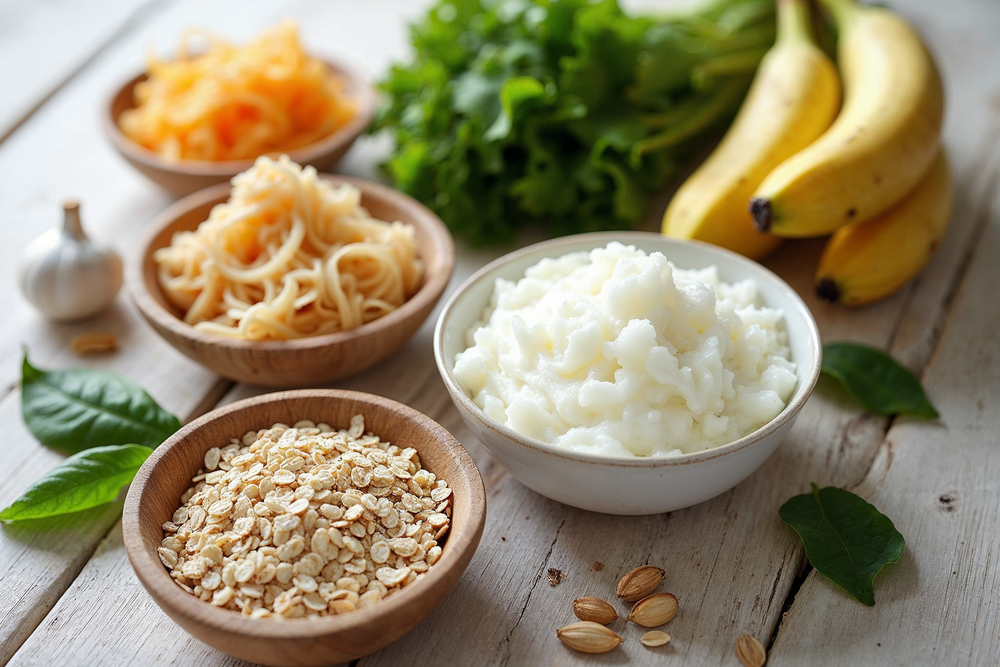Gut Health 101: How It Affects Your Mood and Energy
Jackson Pierce
2025-09-27
6 min read

When it comes to overall health, we often focus on diet, exercise, and sleep. But there’s a crucial system in your body that’s frequently overlooked: your gut. The gut is not just responsible for digestion—it plays a pivotal role in your mood, energy, and even your immune system. Understanding how gut health influences your daily life can empower you to make changes that boost both mental and physical well-being.
The Gut-Brain Connection
You might be surprised to learn that your gut and brain are in constant communication. This connection, known as the gut-brain axis, involves a complex network of nerves, hormones, and chemical messengers. Essentially, your gut sends signals to your brain, and your brain responds in turn. One of the most important players in this relationship is the vagus nerve, which transmits information between the gut and the brain. Additionally, your gut microbiome—the trillions of bacteria living in your digestive tract—produces neurotransmitters like serotonin and dopamine, which regulate mood and energy levels. In fact, around 90% of serotonin is made in the gut. This means that the health of your digestive system directly impacts how you feel emotionally and physically.
How Gut Health Impacts Mood
Have you ever noticed feeling “off” or more anxious after a heavy meal or when your digestion is disrupted? That’s not a coincidence. An unhealthy gut can contribute to mood disorders such as anxiety, depression, and irritability. Dysbiosis, a condition in which the balance of gut bacteria is disrupted, is often linked to increased stress and low mood. When your microbiome is imbalanced, it can produce inflammatory compounds that may affect brain function. Studies have shown that individuals with poor gut health are more likely to experience symptoms of depression and anxiety. Probiotics, prebiotics, and fermented foods can help restore balance to your gut microbiome. For example, foods like yogurt, kefir, kimchi, sauerkraut, and miso contain beneficial bacteria that support healthy gut function. On the other hand, diets high in sugar, processed foods, and unhealthy fats can worsen dysbiosis and negatively affect mood.
Gut Health and Energy Levels
Your gut also has a direct impact on your energy. A poorly functioning digestive system can lead to fatigue, brain fog, and low motivation. When your body struggles to digest food properly, it may not absorb essential nutrients efficiently. This can result in deficiencies in iron, B vitamins, and magnesium, which are critical for energy production. Furthermore, chronic inflammation in the gut can drain your body’s resources, leaving you feeling constantly tired. Supporting gut health through diet, hydration, and stress management can improve nutrient absorption, boost energy levels, and even enhance mental clarity.

Signs of an Unhealthy Gut
How can you tell if your gut is out of balance? Some common signs include:
- Bloating, gas, or irregular bowel movements
- Persistent fatigue or low energy
- Food sensitivities or intolerances
- Mood swings, anxiety, or depression
- Skin issues such as acne or eczema
If you notice several of these symptoms, it may be time to focus on restoring your gut health.
Tips for a Gut-Friendly Lifestyle
Eat a diverse diet: A varied diet supports a diverse microbiome, which is essential for optimal gut health. Include fruits, vegetables, whole grains, and legumes to feed your beneficial bacteria.
Incorporate fermented foods: As mentioned, probiotics found in fermented foods can help balance your gut microbiome. Try to include yogurt, kefir, kombucha, or kimchi in your daily meals.
Consume prebiotics: Prebiotics are fibers that feed the good bacteria in your gut. Foods like garlic, onions, bananas, asparagus, and oats are excellent sources.
Limit processed foods and sugar: Highly processed foods can disrupt the gut microbiome and promote inflammation, negatively affecting mood and energy.
Stay hydrated: Water is crucial for digestion and helps your gut process food efficiently.
Manage stress: Chronic stress can harm your gut bacteria and weaken the gut-brain connection. Practices like meditation, yoga, deep breathing, or even a short daily walk can make a difference.
Exercise regularly: Physical activity supports a healthy gut by promoting beneficial bacterial diversity and enhancing digestion.
Your gut is far more than just a digestive organ—it’s a central hub that influences mood, energy, and overall health. By understanding the gut-brain connection and making conscious lifestyle choices, you can support your microbiome and enjoy more stable energy levels, better mental health, and improved overall well-being. Investing in gut health doesn’t have to be complicated. Small changes, such as eating more fiber, incorporating fermented foods, staying hydrated, and managing stress, can have a profound impact over time. Remember, a happy gut often leads to a happier mind and a more energetic body. Taking care of your gut is an investment in yourself—one that pays off with enhanced mood, sustained energy, and a healthier, more balanced life. So next time you think about wellness, don’t forget to give your gut the attention it deserves.



